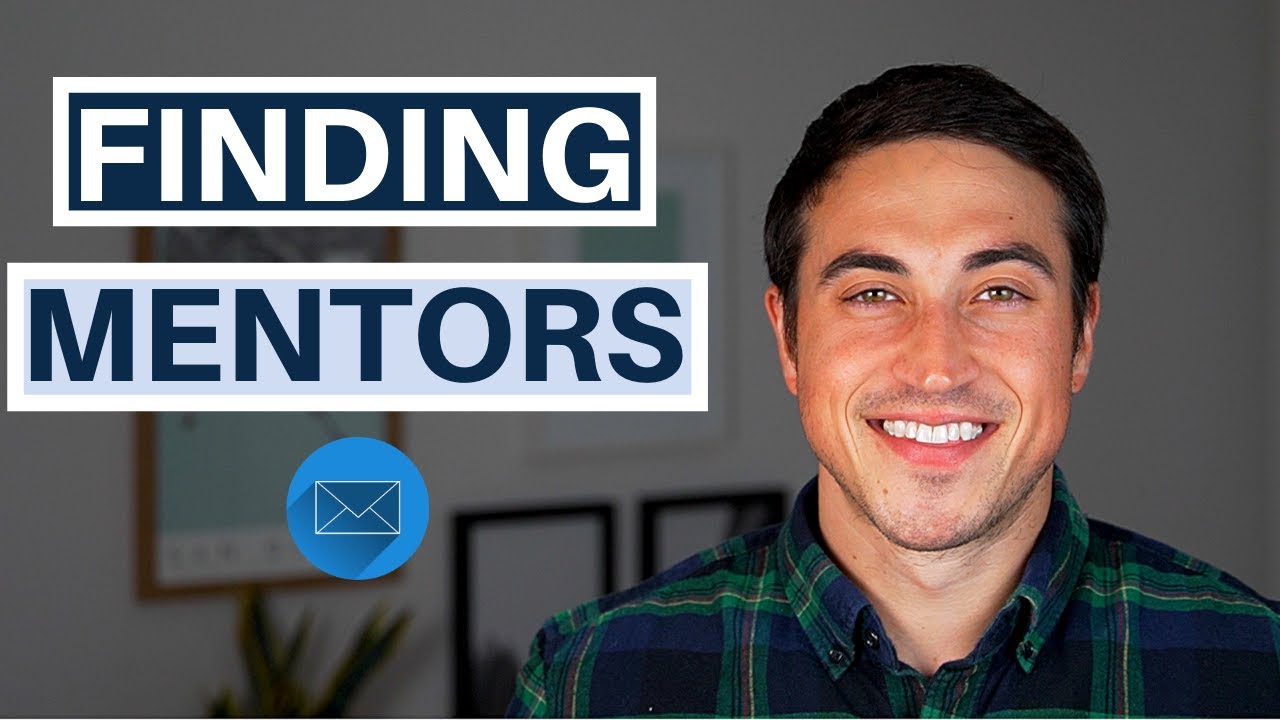
How To Find a Commercial Real Estate Mentor

When I first got into the real estate industry, I knew…pretty much nothing.
But what I did know is that there were people out there that knew a lot more than me (that I could learn from). And because of that, I spent a lot of time and effort trying to meet these people, and to soak up their years of experience that I just didn’t have yet.
Fortunately, thanks to some very patient, forgiving, and understanding mentors, I was able to build a foundation in the industry and get clear on my goals. And I would not be where I am today without those people who have helped me along the way.
From CEOs and experienced investors who were at the end of their careers looking to give back, to people just a few years ahead of me willing to take time to teach me what they knew, mentorship has always been an extremely important part of my own personal growth and development as a real estate professional and I will always be grateful for that.
But, what I’ve found through working with Break Into CRE Academy members over the last few years, is that a lot of people are running into the same problems I ran into when I was just starting out.
Most people don’t know where to turn to find these mentors that can help guide them in their career, and understandably feel intimidated by the entire process of trying to connect with successful people to ask advice.
So, to help you with that process if you’re struggling to find a commercial real estate mentor of your own, in this video, we’ll walk through the three most important lessons I’ve learned about finding (and keeping) the commercial real estate mentors, and how you can apply these lessons to build a stronger network of successful real estate industry professionals in your corner.
If video is more your thing, you can watch the video version of this article here:
My Own Real Estate Networking Experience
When I was in business school, I set a goal to connect with two new people in the real estate industry every single week throughout the entire 21 months of my MBA program.
Getting in front of 168 people in two years isn’t easy. But through that process, I learned a lot of important lessons about how to be efficient with my time, what makes a mentor/mentee relationship more likely to be successful or more likely to fail, and how to find the right people to connect with in the first place.
And this last part is important, because the last thing you want to do is waste your own time, not to mention the time of the other person you’re connecting with.
So, in this article, I want to share three of the most impactful lessons I learned through that process of finding my own commercial real estate mentors, and how to make the most of the relationships that you build.
Build Your Own Board of Directors
The first thing I’d recommend (really above anything else) is to start by stepping back and changing the way you view finding a mentor in the first place.
Instead of searching for one single person that will take you under their wing and teach you everything you need to know, a much more helpful strategy is to create your own “Board of Directors” that can each help guide you in specific individual components of your work life, instead.

We all want to believe that superman is out there, ready to guide us and tell us everything we need to do to be successful. In reality, however, I’ve almost always found that people I’ve looked up to in some areas of life had other aspects of their lives that I didn’t admire at all (and actually wanted to avoid).
Success in the corporate world doesn’t necessarily mean success in entrepreneurship.
Success in entrepreneurship doesn’t necessarily mean someone has the ability to have a great family life.
And a great family life doesn’t necessarily mean, someone has experienced career success.
If you look for one single person to model your entire career and personal life after, you’re probably going to end up disappointed when certain characteristics of that person don’t align with what you want to do and who you want to be.
Finding multiple people that you admire for specific aspects of their work lives or careers, and then relying on them for information or feedback on those characteristics, specifically, is going to give you much more actionable advice to get the results you’re looking for.
This means that if you want to be a successful entrepreneur with a great family life and doing triathlons in your sixties, you don’t have to find someone that does all of those things perfectly. Instead, you can focus your energy on finding three different people in the industry, each of which do one of those things in a way that you admire.

Don’t put so much pressure on one person to be your perfect picture of who you want to become. Usually, it turns out that you won’t want to become every piece of who that person is.
And with that, modeling specific aspects of the work lives of several other people, rather than the entire life of one person, specifically, will get you much closer to putting together the kind of work and personal life you want to have in the future.
Avoid The Question, “Will You Be My Mentor?”
Once you’ve decided to build your Board of Directors, the next step in the mentor search process is to find the people you’re going to add to that board, which leads me to my second point. When looking for people to help guide you in your career, do not directly ask someone to be your mentor.
People hate this question, and this puts a ridiculous amount of pressure on both you and the person you’re connecting with. For someone who already probably has a ton of work and family commitments, a really quick way to get them to stop answering your phone calls or emails is to add the pressure of an indefinite future commitment of energy and time spent guiding you on your career path.
What To Do Instead
You don’t need to put a formal title on someone to have them mentor you. If you want someone to help guide you through your career, it’s your responsibility to make that happen. And you can do this through regularly following up, keeping that person updated on the things you’re working on, and (this last piece is important), adding value to their lives and/or careers in the process.
This last part is something I’ve found people really struggle with, because the logical question that comes up here is, “How do I add value to someone’s life or career when I’m just starting out and have nothing to offer, and they’re already wealthy and successful?”
In my experience, the answer to this question is actually pretty simple – follow through on what you say you’ll do, and do the work to implement advice your mentors give you when you feel it’s appropriate.
When you meet with or connect on the phone with someone for the first time and you ask for their feedback or input on things you can do to get you closer to your goals, one of the best ways to build a long-term, real relationship with that person is to follow up 3-6 months later.
And in that follow-up conversation, this is your opportunity to let them know you took action on something they recommended, and to share the success or achievement you accomplished through implementing that advice.

For people at the peak of their careers, time is extremely valuable, and the last thing they want to do is waste that time on a conversation that won’t result in any action taken. If you hit new career milestones like landing an internship, receiving a full-time job offer, or closing on your first deal, reach out to these people and let them know how you implemented their advice, and thank them for the insight they gave you.
This goes an incredibly long way in making you stand out as someone that takes action, does what they say they’re going to do, and is grateful and appreciative of the time and help from others.
And when you do this (as an added bonus), that person is also likely going to be much more willing to help you the next time you have a situation you need guidance on.
Treat your networking like building real relationships with real people, because that’s exactly what you’re doing.
The less transactional you make these connections and the more you show humility and gratitude, the more successful you’ll be in building these relationships. Even if you’re not wealthy and wildly successful just quite yet.
Seek Out Young Real Estate Professionals Who Have Recently Walked Your Path
Last up on this list, the final big lesson I’ve learned throughout this process is one that tends to be missed by a lot of people when they’re first starting out, and that is to be open to mentors that are just one or two steps ahead of you.
Most people think of a real estate industry mentor as someone who has accomplished massive amounts career success already. However, some of the most valuable people to learn from are still relatively early on in their own careers, and may not have accomplished all of their own goals just yet.
Very successful people who have been in the industry for 30+ years definitely have helpful perspectives, but it’s also been a very, very long time since these people have encountered the kinds of challenges you’re going to be going up against when you’re first trying to break into commercial real estate or in the first few years of your career.
Connecting with people who just went through the process of what you’re looking to do next allows you to talk to someone that really “gets it” right now. These people can also give you more relevant, timely, and tactical real-time feedback and advice based on an experience they just had only a few years ago.

As an added bonus here, building these relationships also gives you the benefit of creating connections with people that you’ll actually do deals with in the future.
While someone with 2-3 years of experience on you in your early 20s might seem like a big difference, when you’re in your 30s and 40s in the prime of your careers, those people will have become your peers and will be the same people you’ll be working with to make transactions happen.
Anyone that has walked a path that you also want to walk can be a helpful guide towards building the career you’re setting out to build. And even if that person hasn’t accomplished everything they want to accomplish long-term just yet yet, the input from a younger industry professional early on in their career can sometimes be even more valuable than the input from someone who has already “won the game” and may not even remember what it was like to be in your shoes.
Commercial Real Estate Mentorship Strategy, Simplified
To sum all of this up, if you build your Board of Directors in specific aspects of your work and personal life, guide your actions around fostering real relationships with real people, and recruit the help of industry professionals just a few steps ahead of where you are today, this a great overall strategy to create a network of people you can rely on to help you navigate through the real estate industry.
Personally, I wouldn’t be anywhere close to where I am today without the mentors I’ve had in my own career. And even though it can be intimidating and time consuming to go through this process, making the effort to build your own Board of Directors will go a long way in helping you take your career in the direction you want it to go, and will allow you to build a team of allies for the times when you really need it most.
How To Apply This To Your Own Career
If you’re looking to break into the commercial real estate industry today and want some individualized help jumpstarting the process, make sure to check out Break Into CRE Academy.
An Academy membership will give you access to a private, members-only career coaching email address to ask questions and get feedback on your own unique situation, and you’ll also get instant access to our full library of video courses on real estate financial modeling and analysis to build the technical skill sets you’ll need to land a job at a top real estate investment, brokerage, or lending firm.
Good luck with the networking process!


